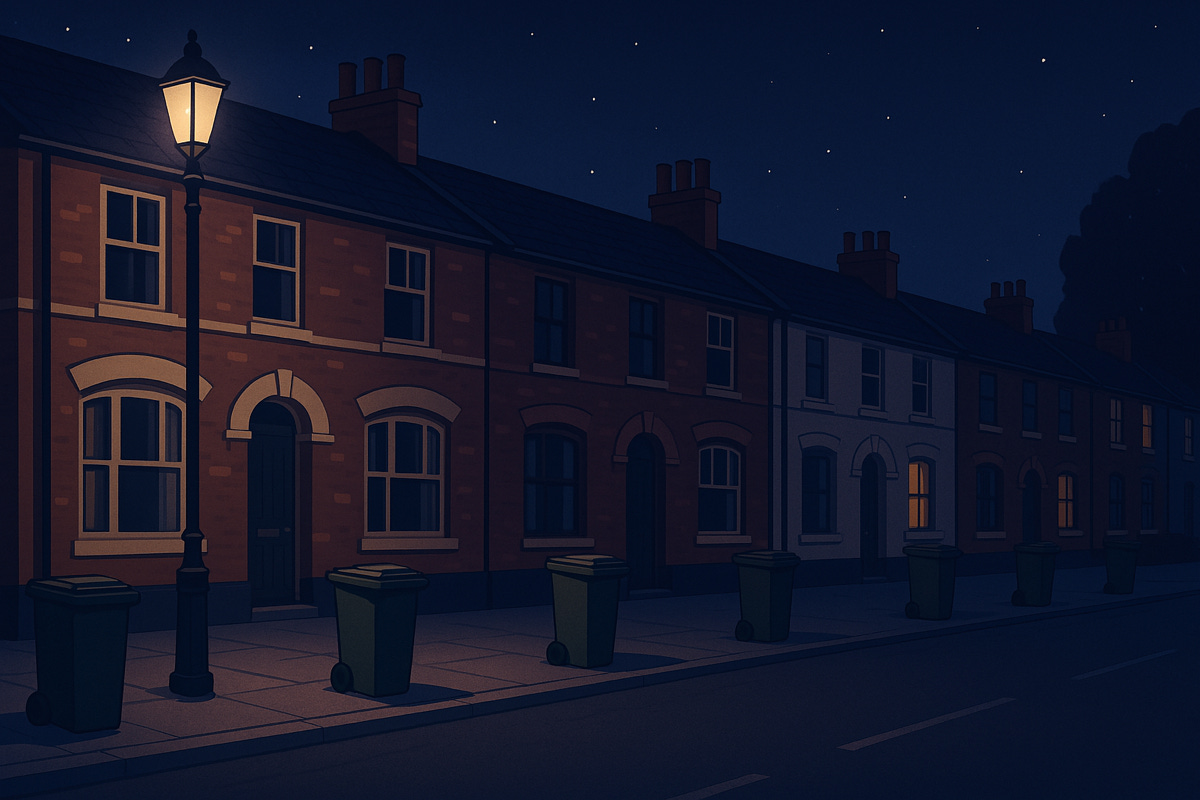Why Do Men Take Out the Bins at Night?
From Breadwinners to Bin-Wheelers: A Man’s Midnight Chore Explained
This week’s newsletter is a little different, but stick with me—it all began in a pub…
A few months ago, I found myself surrounded by local gents at the pub—a proper sausage party, if you will. Somewhere between the second pint and the third bag of crisps, one of the fellas asked:
“Why is it always the men who take the bins out at night?”
Cue the head nods and half-hearted moans. But, being the resident history man, I couldn’t resist giving them a little lesson—one that I now bring to you, my dearest readers.
It All Started in the Victorian Era
Over a hundred years ago, in the days of Queen Victoria’s rule, boys as young as ten often surpassed their mothers in earning power. Many began working full-time jobs before they were teenagers, with others juggling part-time tasks.
This gave them the freedom to roam the streets as needed for work—day or night. And so, boys and men gained cultural permission to move about the town whenever they pleased. The night streets? Firmly their domain.
As men became the main breadwinners, society adapted. They worked long hours, brought home the wages, and in return, were given the best food, a seat at the head of the table, and time to rest in the evenings. Meanwhile, women managed the home and raised the children—especially boys under ten, who stayed with their mothers to learn basic life skills.
But Not All Streets Were Open
While men wandered freely, women had restrictions—especially after dark.
Only a few women walked the night streets, and those who did were often either sex workers, who depended on discretion and male clientele, or women seeking illegal abortions under the cloak of secrecy.
Respectable women simply didn’t go out at night unaccompanied. Doing so risked her entire moral standing in the community.
Ladies Out Late?
Of course, emergencies and the occasional girls’ night happened—but even then, rules applied. A woman could only walk the streets after dark if she was with:
• A trusted female friend or group of girlfriends,
• Or a male escort (preferably over the age of ten!).
In tightly knit communities, these support networks mattered. Friendship wasn’t just social—it was essential. If your good name mattered, you’d better know your neighbours.
The Trash Dilemma
All of this left one very specific, very practical problem: who was going to take out the trash?
It couldn’t be a woman on her own, and a parade of girls for each house simply wasn’t feasible. And thus, the job naturally fell to the man of the house.
It became the only bit of housework women physically couldn’t do on their own—not because they weren’t capable, but because society wouldn’t allow them to without judgment.
And here we are, generations later, still sending the men out with the bins.
Men, Use Your Power Wisely
To those fine gentlemen in the pub—and to any man reading this: know your power, and wield it well.
The man of the house has always held the role of protector—not just of the home, but of the family’s honour. Neglecting the bins might seem small, but in Victorian terms? That’s your reputation on the line.
So next time a bloke complains about taking the bins out, remind him of the women who weren’t allowed to walk those same streets after dark.
Be a gentleman. Take the bin out with pride.
Because the only real reason not to… is laziness.
And that, dear reader, is no excuse for losing the family’s good name.
Men, Use Your Power Wisely
To those fine gentlemen in the pub—and to any man reading this: know your power, and wield it well.
The man of the house has always held the role of protector—not just of the home, but of the family’s honour. Neglecting the bins might seem small, but in Victorian terms? That’s your reputation on the line.
So next time a bloke complains about taking the bins out, remind him of the women who weren’t allowed to walk those same streets after dark.
Be a gentleman. Take the bin out with pride.
Because the only real reason not to… is laziness.
And that, dear reader, is no excuse for losing the family’s good name.
Until next time,
The Royal Duke




